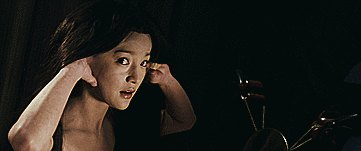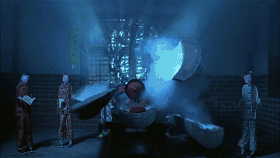By Localiiz
Branded | 17 May 2024
By Localiiz
Branded | 14 May 2024
Copyright © 2025 LOCALIIZ | All rights reserved
Subscribe to our weekly newsletter to get our top stories delivered straight to your inbox.
Header images courtesy of Mr Vampire (via IMDb)
No matter your roots, we all grew up listening to chilling tales of vengeful spirits and threatening ghosts lurking around street corners, crawling through the night. Every culture is brimming with terrifying stories of hauntings and wraiths of every disposition, and Chinese culture is no exception. In the spirit of Halloween, we bring you five of the creepiest supernatural creatures from Chinese folklore you need to watch out for this All Hallow’s Eve.



Fox demons (狐狸精; wu4 lei4 zing1) are shape-shifting creatures that take on different forms in order to trick their victims and eat their hearts to gain immortality. Chinese folklore tells the tale of a man who stumbled across a pretty damsel in distress and took her home to stay with him. One night, he spies on her through the bedroom window but instead of seeing the beautiful girl he brought home, he sees a demon painting human features on a woman’s skin. Makes you think twice about who you bring home this Halloween...

A hanged ghost (吊死鬼; diu3 sei2 gwai2) is the ghost of someone who died from hanging—be it suicide, execution, or otherwise. If you come across these ghosts, never look them in the eye. Urban legend has it that if you do, they’ll taunt you into hanging yourself as well. Hanged ghosts are usually depicted as having long, red tongues sticking out of their mouths. In popular culture, they are often portrayed with long, dark hair, and wearing a white dress—not dissimilar to Bent-Neck Lady from The Haunting of Hill House.
Surprise, surprise—water ghosts (水鬼; seoi2 gwai2) are the ghosts of people who drowned to death. Typically, they lurk in the waters they drowned in, waiting to pull unsuspecting swimmers underwater so they can take over their bodies. This process is known in Chinese as “water ghosts catching replacements” (水鬼抓交替; seoi2 gwai2 zaa1 gaau1 tai3). If you grew up around a Chinese community, you may have been warned by elders to never go swimming at night, especially not at beaches, or else the water ghost will grab your foot and drown you. So much for that peaceful night swim.
In Chinese Buddhist teachings, hungry ghosts (餓鬼; ngo6 gwai2) are the restless, frustrated spirits of those who were greedy or unsatisfied in their past life. Unlike regular ghosts who typically take on a more human appearance, hungry ghosts have bulging stomachs, greenish skin, fiery breath, and tiny mouths. The constricted throats of these ravenous spirits limits their ability to satisfy their appetites, so they wander around aimlessly in search of relief. The Hungry Ghost Festival—which is observed in Hong Kong and across China each year—is dedicated to appeasing these hungry spirits and preventing them from haunting your house.

Geung si (殭屍) literally translates to “stiff corpse” and it is arguably Chinese pop culture’s favourite monster. Derived from Qing and Ming dynasty folklore, geung si are believed to be resurrected corpses. Stiff-bodied with sharp black talons and canine-like teeth, they are similar to vampires and are said to be afraid of the sun, spending their days hiding in dark places such as coffins and caves. When night falls, they feed off humans or livestock and drain their energy. With their forever outstretched arms and hopping movements, these zombies are often portrayed in Chinese cinema as rather dim and comical. Geung si even inspired the Chinese horror genre of “hopping vampire” films!


Top

